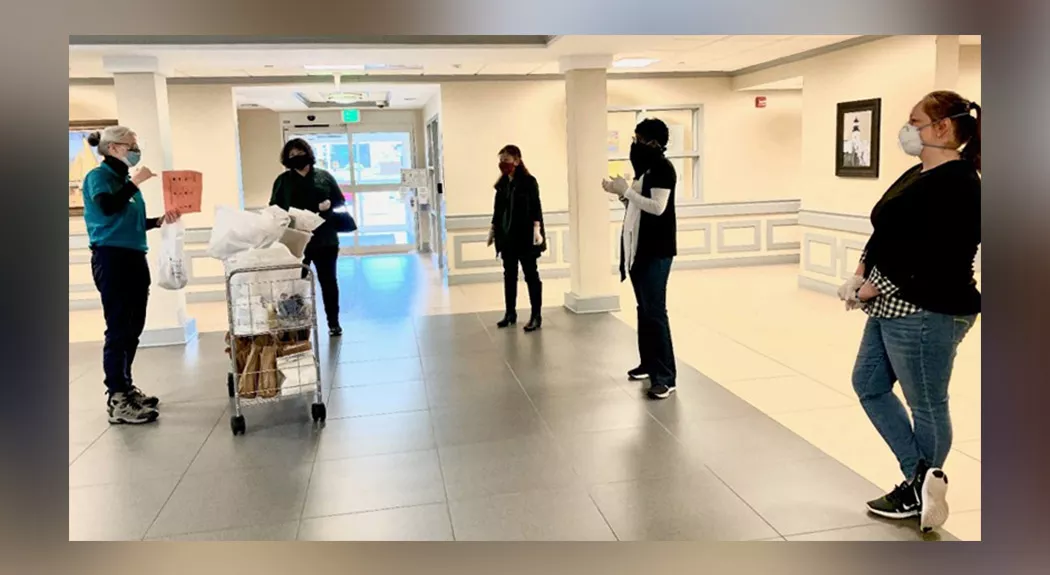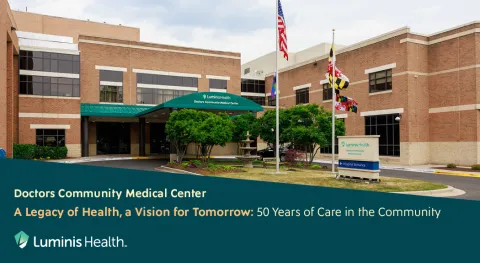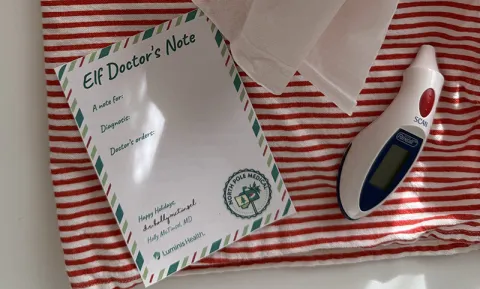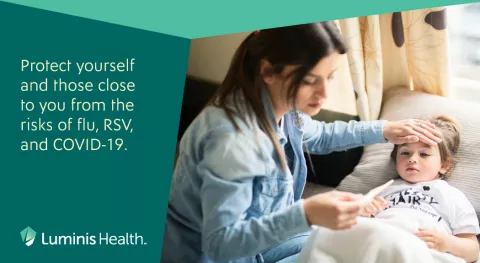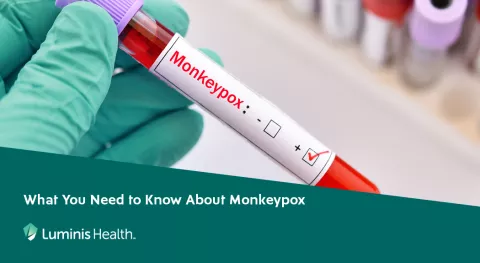Charlotte Wallace makes her way inside Morris H. Blum Senior Apartments. She knocks three times on one of the wooden doors.
‘I’m a nurse with Anne Arundel Medical Center,’ she identifies herself.
The lock slowly turns. Before Wallace knows it, a hand quickly grabs the bag she’s holding and then disappears with the sound of the door shutting. ‘Thank you,’ they shout from inside.
She smiles, grabs another bag and repeats the process. She does this with more than 150 tenants in that building alone.
“Some of the seniors we visit are scared and close the door immediately,” she said. “Others give us Halloween candy in exchange as a thank you and some are just excited to see new faces.”
Wallace explained a few of the residents are not as in tune with the news or updates. As a result, they’re confused as to why Wallace and her team are there. “We answer their questions and give them as much education as we can,” she added.
Wallace is a community health nurse at Anne Arundel Medical Center (AAMC). Her main role is to bridge the hospital and the community. When news about coronavirus (COVID-19) broke, she knew she had a lot of work to do. She started by contacting community partners to look at ways to slow down the spread of the virus. This meant looking at the ‘wrong trends,’ misconceptions and ways to close the gap.
To do this, she launched the COVID-19 Community Outreach program. The primary goal of the program is to decrease the spread and hospitalization of COVID-19 patients. This is achieved through increased education and improved access to support and health services.
“We quickly discovered there was a gap in some of our housing units,” Wallace explained. This was primarily the case where subsidized seniors, disabled adults and homeless shelter residents lived.
Wallace had already built relationships of trust and understood the systemic problems in the community. As a result, her approach included passing out educational fliers and kits to meet basic needs. On April 14, she started to knock on doors to personally distribute the kits. To date, she has visited 18 different locations around Anne Arundel County – conducting visits in 14 of those locations by herself.
Just a couple of weeks later, another team at Doctors Community Hospital (DCH) did the same in Prince George’s County. This team covered 10 additional locations.
“We used the same program in Prince George’s County,” said Leslie Strimel, director of Case Management, Social Work and Transition for Care at DCH. “We sent out a nurse practitioner to the communities that the county identified as being in need of this program.”
Just like in Anne Arundel County, Strimel said low-income seniors in residential facilities formed these communities.
Each COVID-19 Community Outreach kit has two cloth masks per resident, two laundry detergent pods and a bar of soap per apartment, along with educational resources. The printed resources are Centers for Disease Control and Prevention (CDC) guidelines simplified by Wallace to help residents understand how to best protect themselves.
Each kit also includes fliers that explain how to wear a mask, how to protect yourself and others, how to wash your clothes during the pandemic and much more. In Prince George’s County, the educational material includes the 211 number, which is also a crisis number for behavioral health.
According to Wallace, the identified gaps already existed. However, the outbreak made these and the need to close them more obvious.
“Some people told me that they just wash their clothes in hot water and don’t use any soap,” she said. “With the pandemic, a lot of our most vulnerable residents are taking a bigger burden. ‘Just doing telehealth’ is not possible without a phone or an email address. Some of these residents don’t even have a landline.”
Wallace goes out at least twice every week and visits several sites to distribute kits. Additionally, she gives out kits with instructions. These are specifically for management at the sites and include best practices to protect their residents.
Wallace also uses visits as an opportunity to conduct screenings. These include screenings for mental health and nutrition. According to her, many seniors she visits are scared, isolated, already limited and depressed.
“We came across a senior who was very depressed,” she said. “I went through a basic screening and I gave the person the crisis response number in case they needed to reach someone. I was giving out that number at least once per building, which is common.”
To date, the program’s teams conducted over 2,900 visits in Anne Arundel County and over 2,250 visits in Prince George’s County. And while it is hard to measure the true impact of the outreach, Wallace is confident the team is helping many during this difficult time.
“One day, a team entered a floor to find a gentleman, with rotted nubs for teeth, standing in the hallway,” she said, adding that he started to cry. “He said he thought we missed him with our ‘masks and laundry soap’ after his sister, who lives in the same building, called him to tell him that the nurses came by her apartment.”
After a short screening, they noted that he had major food insecurities and connected him to the Senior Nutrition Program.
Another resident received her kit and couldn’t stop hugging it. “She was so excited to receive two laundry detergent pods,” Wallace said.
Similarly, Ursula Friton, manager of Transitional Care at DCH, said residents in Prince George’s County have been very welcoming of the program. According to her, it’s been very new but a great experience both for the DCH team and the seniors.
“There was a big need for this program in our county,” she said, explaining that the program is on its third week. “Seniors are happy to see us and very grateful to get their kits.”
The outreach teams in both counties plan to continue working with managers at the various facilities. They plan to support the most vulnerable communities, even after the pandemic subsides. Wallace and Strimel are working with both counties and the Maryland Health Department to reach other communities that are in need of resources and information.
